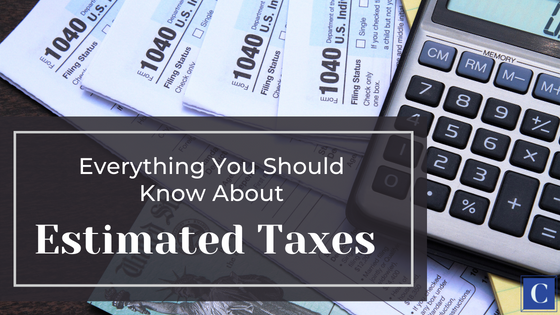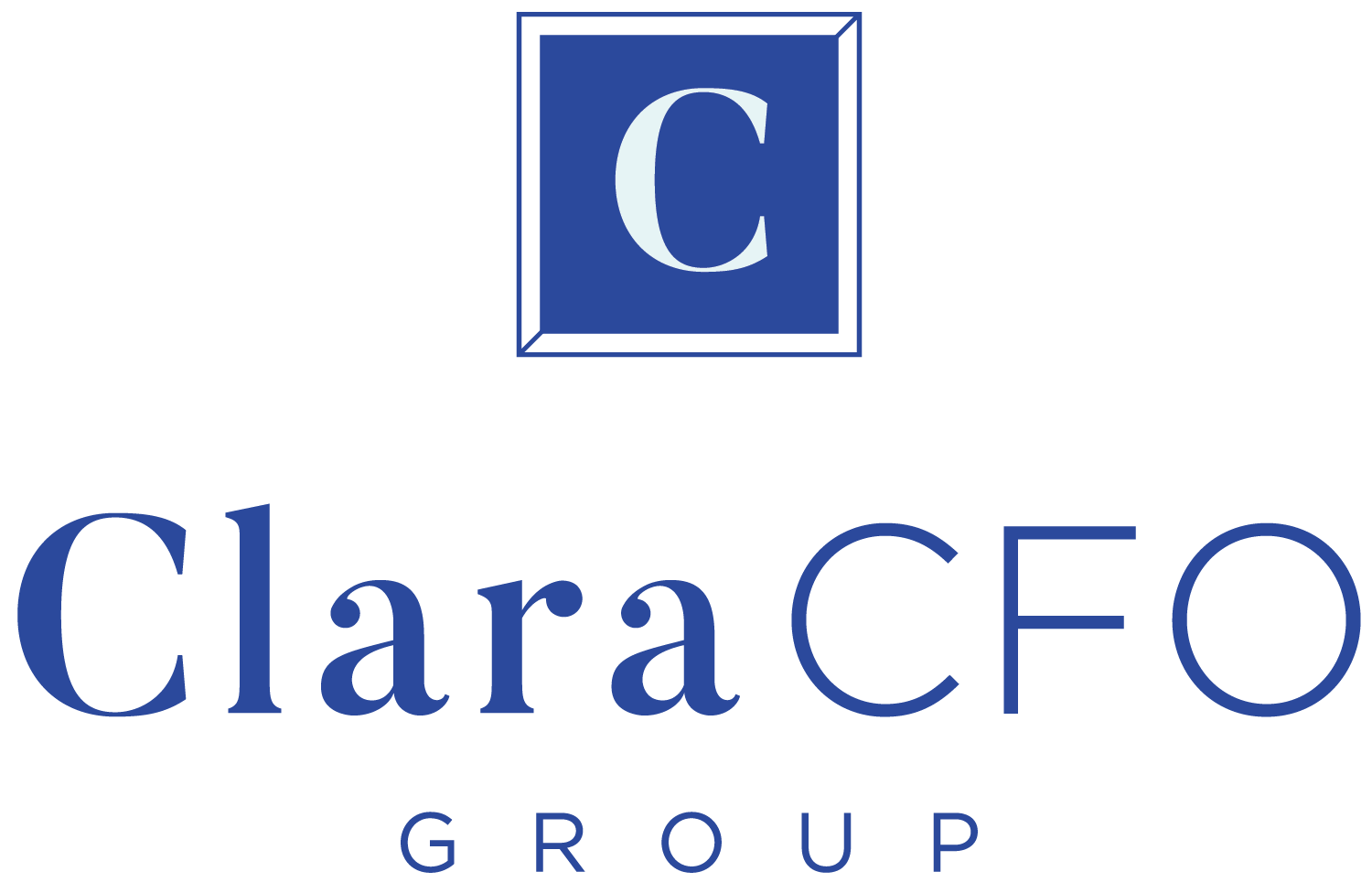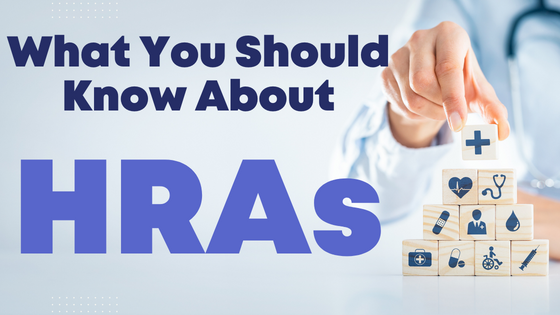
For most business owners, January rolls around and thoughts turn away from the holidays and land flatly on tax deadlines and IRS requirements. One of the first deadlines we have in any new year is the final estimated tax deadline for the tax year. This article covers estimated taxes, what they are, and why they are important.
For additional help understanding the calculations, tax rates and the forms, check out our recent video on the Clara CFO Group YouTube Channel below. You can access the spreadsheet provided HERE.
About tax payments
Paying taxes to the IRS is a “pay as you go” system. This is preferred by the IRS as it wants to receive your taxes as your income is earned. They want to collect taxes when you have the cash available.
For W-2 Employees
Employees pay federal and state taxes through withholdings on each paycheck. Most employees won’t have to worry about estimated tax payments unless they have a significant income event with no tax withheld.
For Small Business Owners
Business owners are one of the largest groups of people that need to be thinking about paying estimated taxes. The IRS understands it is a burden to calculate your taxable income (revenue less expenses) and pay the taxes due each month. To reduce this burden, your tax payments are spread into four payments throughout the year:
- January 1 to March 31, due April 15
- April 1 to May 31, due June 15
- June 1 to August 31, due September 15
- September 1 to December 31, due January 15 of the following year.
Note that these payments are not spread evenly by quarter. The first payment covers three months, the second two months, the third three months, and the fourth covers four months.
If you have a tax refund due to you after filing your taxes, you can choose to leave it with the IRS and apply it to your first quarter estimate.
Estimated taxes include income taxes on the predicted profit of your business plus self-employment taxes. If you have a sole proprietorship or a partnership, you will pay self-employment taxes on your profit. Self-employment taxes include contributions to the Social Security and Medicare programs, similar to the payroll taxes employees must pay. Employers match the amount paid by the employees. However, business owners that pay self-employment taxes are considered as both the “employer” and the “employee” and must pay both shares of Social Security and Medicare.
If you have a C-Corporation or an S-Corporation, you are paid as an employee and are not subject to self-employment taxes. However, Corporation owners still need to consider both their taxes withheld from their W2 wages plus their income from their business in determining their overall tax liability (amount owed) to the IRS.
Why Pay Estimated Taxes
The IRS does not like it when people and businesses aren’t paying their taxes on time. The IRS will assess an underpayment penalty if your estimated payments do not meet one of the two options:
- Option 1: Pay 100%* of what you paid last year in taxes
- Option 2: Estimate your profit and taxes on that profit and pay those taxes. You want to pay in 90% or more of what you should pay.
*If your adjusted gross income was over $150,000 in the previous tax year, your threshold is 110% of last year’s tax paid.
Paying taxes on time and within these guidelines will help you avoid expensive IRS penalties!
As a taxpayer, you have some room to strategically manage the timing of your estimated payments. For example, if your taxable income increased over last year, you may want to save your cash and pay the amount for last year’s taxes and then true up to the correct amount when you file your tax return.
If you have excess cash, you may want to go ahead and pay the correct estimated amount if you tend to burn through your cash reserves.
With the pandemic, if your profit is lower than last year, you may not want to pay last year’s tax amount. Instead, pay what you think your actual amount would be.
These decisions should be made with a professional that understands your full tax picture and current financial situation. Estimating taxes is something that our Clara CFO Group CFOs will discuss with our clients. If you are interested in learning more about having a Clara CFO on your team, please reach out to us by booking a Discovery Call here:
Disclaimer: This blog and the linked videos are intended for educational purposes and should not be taken as legal or tax advice. You should consult with your financial professionals about your unique financial situation before acting on anything discussed in these videos. Clara CFO Group, LLC is providing educational content to help small business owners become more aware of certain issues and topics, but we cannot give blanket advice to a broad audience.






